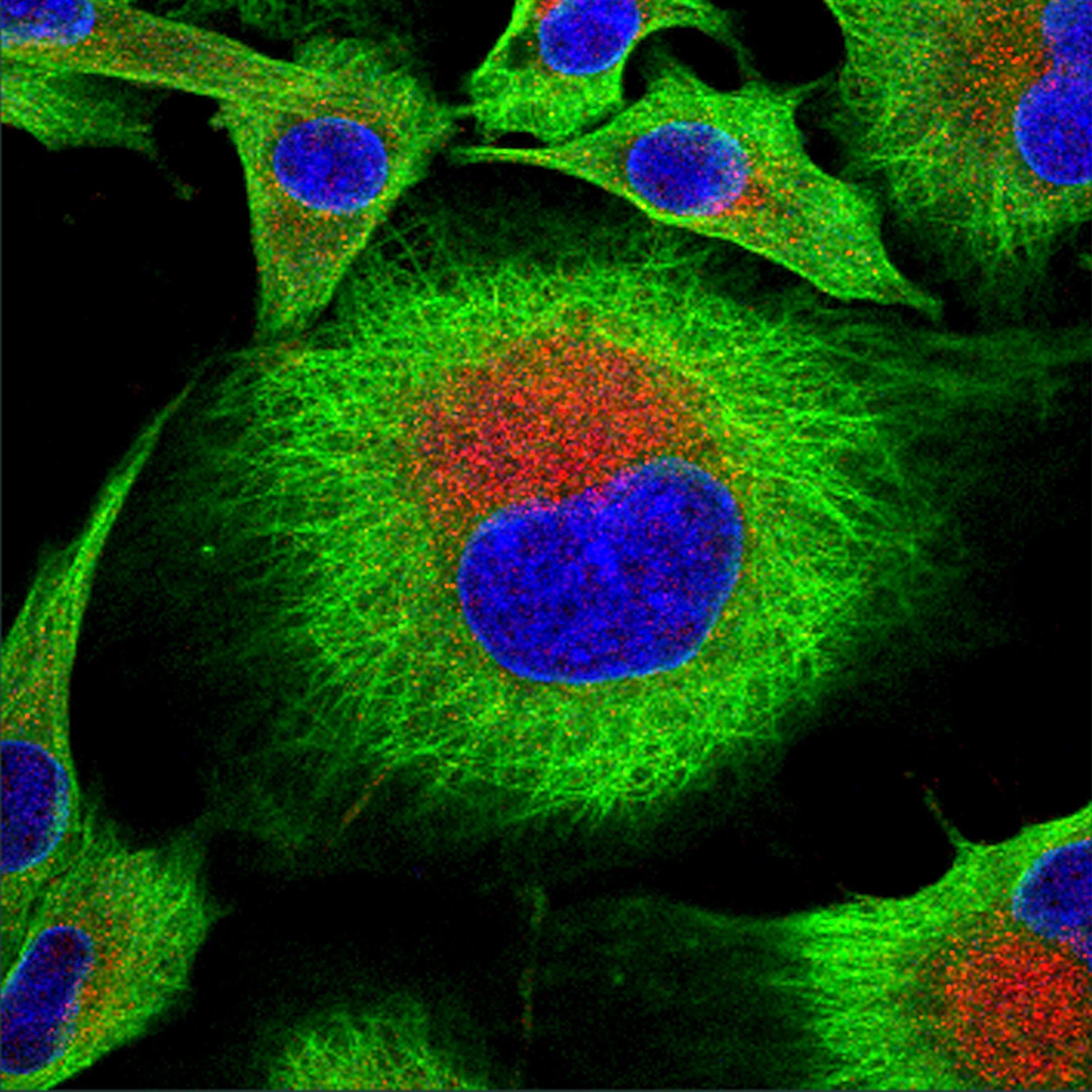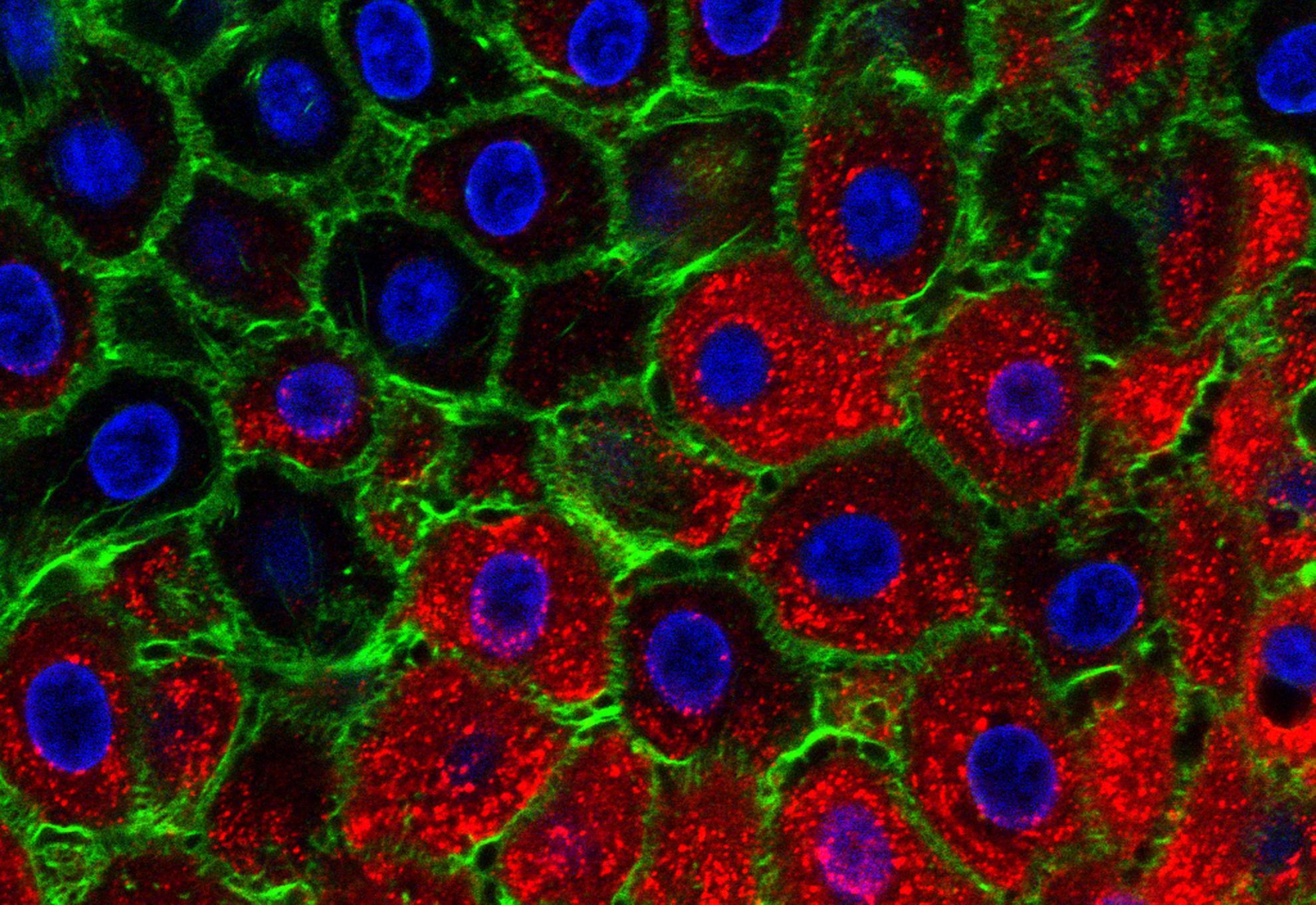Bovine plasmacytoid dendritic cells are the major source of type I interferon in response to foot-and-mouth disease virus in vitro and in vivo
Type I interferons (alpha/beta interferons [IFN-?/?]) are the main innate cytokines that are able to induce a cellular antiviral state, thereby limiting viral replication and disease pathology. Plasmacytoid dendritic cells (pDCs) play a crucial role in the control of viral infections, especially in response to viruses that have evolved mechanisms to block the type I IFN signal transduction pathway. Using density gradient separation and cell sorting, we have highly enriched a population of bovine cells capable of producing high levels of biologically active type I IFN. These cells represented less than 0.1% of the total lymphocyte population in blood, pseudoafferent lymph, and lymph nodes. Phenotypic analysis identified these cells as bovine pDCs (CD3? CD14? CD21? CD11c? NK? TCR?? CD4+ MHC II+ CD45RB+ CD172a+ CD32+). High levels of type I IFN were generated by these cells in vitro in response to Toll-like receptor 9 (TLR-9) agonist CpG and foot-and-mouth disease virus (FMDV) immune complexes. In contrast, immune complexes formed with UV-inactivated FMDV or FMDV empty capsids failed to elicit a type I IFN response. Depletion of CD4 cells in vivo resulted in levels of type I IFN in serum early during FMDV infection that were significantly lower than those for control animals. In conclusion, pDCs interacting with immune-complexed virus are the major source of type I interferon production during acute FMDV infection in cattle.

